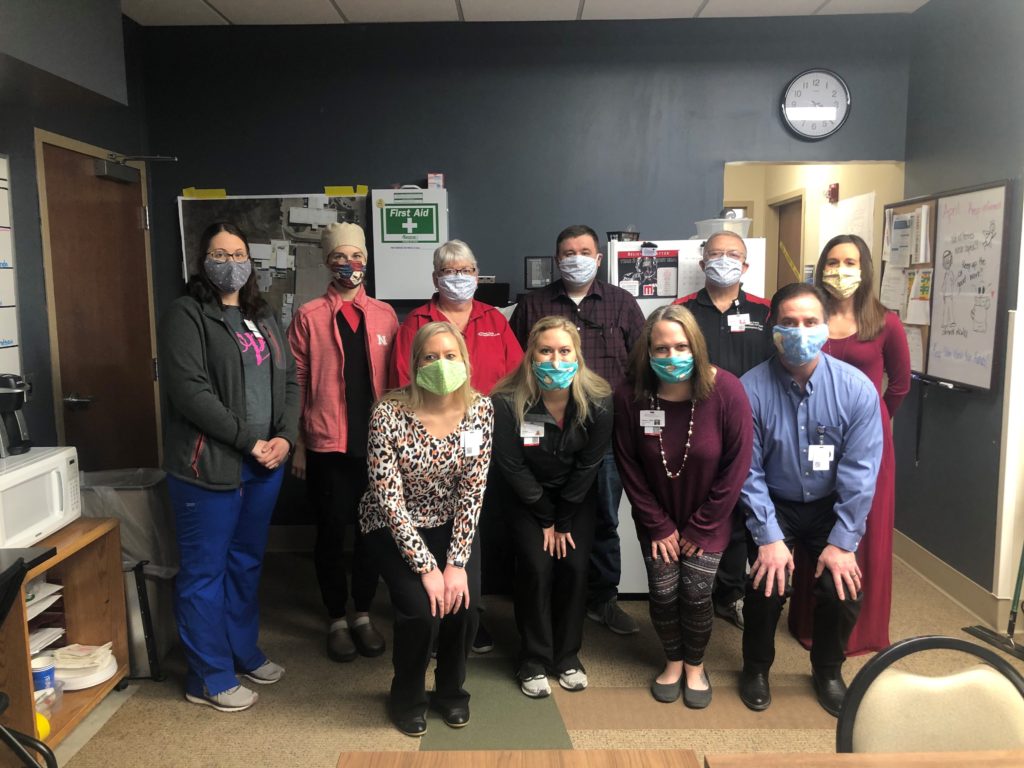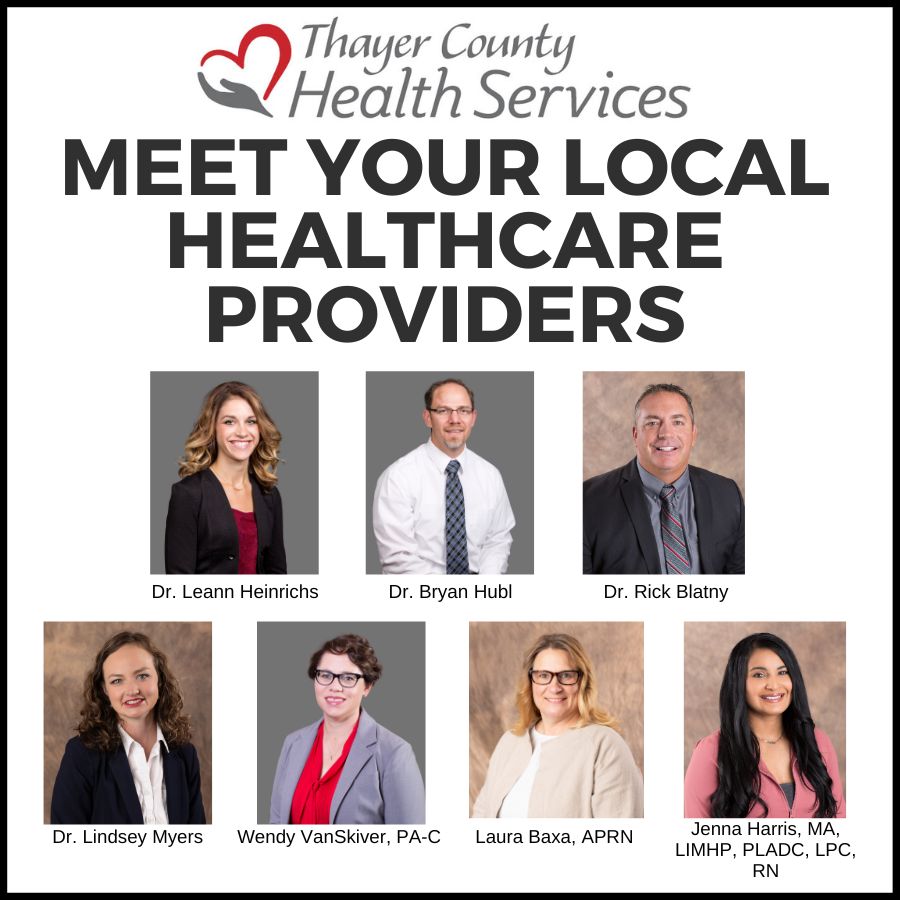Professionals offer answers to COVID-19 questions

The Hospital Incident Command System (HICS) team gathered and answered the Hebron Journal Register’s questions about infection control, emergency preparedness, and COVID-19 related situations. The interview was conducted by Thayer County Health Services Marketing Director, Kassi Hartley, MPA.
Who is the infection control coordinator and what is his/her role?
Megan Janousek, RN, is the TCHS Infection Control Coordinator. During this time, she is working closely with Public Health Solutions and Nebraska Department of Health and Human Services, serving as a liaison to ensure that TCHS is following and implementing Centers for Disease Control and Prevention (CDC) guidelines and recommendations. She also assists in communicating with staff about infection control policies and procedures, especially those that continue to evolve regarding COVID-19.
What is a hospital incident command system?
Hospital Incident Command System (aka HICS) is an incident management system based on principles of the Incident Command System (ICS), which assists hospitals and healthcare organizations in improving their emergency management planning, response, and recovery capabilities for unplanned and planned events. HICS is consistent with ICS and the National Incident Management System (NIMS) principles.
The principal beneficiaries of HICS will continue to be anyone with a response role during a crisis including, hospital physicians, nurses, and administrators.
Hospitals throughout the United States and the world continue to confront a wide variety of operational and fiscal challenges on a daily basis.
To manage emergencies, whether external (e.g., earthquakes, fires, floods) or internal (e.g., utility failure, child abduction, or workplace violence), hospitals invest time and valuable resources to ensure adequate emergency plans are in place and personnel are sufficiently trained to respond.
Who is on the incident command system team and what are their responsibilities?
The HICS team is comprised of an Incident Commander, Public Information Officer, Liaison Officer, Safety Officer, Medical Technical Specialists, Operations Section, Planning Section, Logistics section, and Finance/Admin Section.
The structure of the HICS team varies based on the type of emergency. Currently, the HICS team meets frequently to discuss preparedness and action items based on how the COVID-19 situation is evolving.
What happens to a potential coronavirus patient from the time they arrive at the hospital?
Patient symptoms are addressed on a case by case basis. Additional precautions may be necessary, depending on the situation. In the event a patient presents with possible COVID-19 symptoms and needs to be admitted as an inpatient, TCHS has a negative pressure room prepared for immediate use.
If anyone suspects they have been exposed to and/or are experiencing symptoms of COVID-19, they are asked to call ahead to Thayer County Health Services (402-768-4615) before arriving at the hospital to allow healthcare providers time to appropriately plan for arrival.
Patients will be given further instructions at that time. Every precaution is taken to ensure the staff and patients are protected appropriately.
What is the routing process based on a patient’s symptoms?
All patients with a fever and/or respiratory symptoms such as cough, shortness of breath, or sore throat are asked to please call ahead to 402-768-7203 to be screened and to schedule an appointment before coming in for a clinic visit.
Suspected COVID-19 patients will continue to be directed to the Emergency Room entrance at the hospital in Hebron.
Thayer County Health Services has implemented a specialized Respiratory Clinic at the Deshler Medical Clinic in Deshler to care for non-COVID-19 patients during this time.
The hours for the Respiratory Clinic are 9 a.m. to 4:30 p.m. Monday through Friday.
Based on a patient’s symptoms, the patient may be rerouted to our Respiratory Clinic in Deshler, the Emergency Room in Hebron, or our Hebron Medical Clinic at the hospital.
Patients should come to their appointments alone unless they need assistance. Parents should limit their child’s appointment to one parent.
What is the screening process when a non-COVID-19 patient arrives?
All patients that enter the facility will be screened by an employee who will ask about recent travel history, potential contact with a suspected COVID-19 case, and current symptoms, followed by a temperature reading.
The screening process typically takes less than 5 minutes.
Effective April 20, 2020, per CDC recommendations, all patients, essential visitors and essential vendors will be required to wear a mask while in the TCHS facility. The hospital has masks available to wear during visits. Masks must be returned before exiting the facility for laundering, per CDC guidelines.
Are you still open for non-COVID-19 related appointments?
Emergency Rooms are still open for other emergencies. People should not delay seeking treatment in the event of an emergency.
The Hebron Clinic is open to non-COVID-19 related patients. They must call ahead to 402-768-7203 for an appointment.
In order to keep the Hebron Medical Clinic a “clean zone,” patients are screened at the front door of the hospital, and encouraged to utilize the Hebron Medical Clinic for problem visits, well-child visits, CDL physicals, school physicals, immunizations, injections, and other services.
Clinic services are still open to all who need them. The hospital does not want people to be afraid to reach out.




